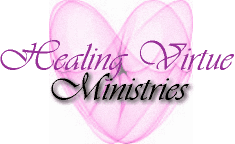


Visitors
THE PARISH NURSE
A nurse on the staff of a local congregation...serving as a minister of health? "Why not," queried George Caldwell, president of Lutheran General Health Care System. "Scripture provided no account of Jesus ever having sung hymns or songs and yet we have ministers of music in practically every congregation in the world; yet the Bible is loaded with referenes about Jesus healing the sick but very few congregations have a minister of health."
In the Parish Nurse program, the local congregation is conceptualized as a health agency in the community and the nurse is the minister of health on its parish or church staff.
THE PARISH NURSE'S ROLE
While actual functions are determined by the character and needs of the individual congregations, the Parish Nurse role has been defined by four primary, overall functions:
1. Health Educator: Through a variety of formats, seminars, conferences and classes, the parish nurse seeks to raise the health consciousness level of the parish community and to foster an understanding of the relationship between lifestyle, personal habits, attitudes, faith and well-being. The educational efforts may include such subjects as stress, grief, diet, weight control, exercise, family relationships, sex, child care, adolescence, mid-life, value clarification, cancer, Alzheimer's disease, depression, heart attacks, care of the body, AIDS, suicide, guilt, divorce and dying.
2. Health Counselor: The parish nurse is available to discuss personal health problems, to recomend medical intervention, to make home, hospital and nursing home visits as indicated. Such efforts may include screening for diabetes and hypertension. Experience has shown that the visibility and availabilty of a parish nurse helps parishoners to recognize, acknowledge and get medical help for symptoms that may otherwise have been ignored or denied.
3. Referral Source: The parish nurse serves as a liason to a variety of community resources and services. These may include physician referrals, self-help groups, federal, state or community agencies, nursing homes, hospitals, legal or financial counsel, psychotherapy and home care.
4. Facilitator: The parish nurse helps to organize support groups within the congregation and to recruit, retain and supervise volunteers who broaden and extend the sources of help within the parish. Volunteers may reach out to individuals who have recently sustained a loss, or to families attempting to care at home for recently hospitalized loved on. It has been found that the services provided are as varied as the human needs encountered.
In all these functions, the parish nurse seeks to help the congregation re-identify, re-interpret, re-discover and reclaim its historic role in the area of health and well-being. Parish Nursing seeks to bring together philosophical and theological premises, which are both ancient and modern. It is an attempt to respond to current trends in illness and health care within a faith-related framework.
Health and illness is being viewed as a complex interaction of the biological, psycological, social, mental and spiritual forces within people, as well as the interplay of heredity, environment, interpersonal relationships, faith and lifestyle. Many illnesses are preventable and individuals in our society can assume more responsibility for their own health. By education, knowledge and inclination, the parish nurse is a premier person in helping people channel and direct such efforts toward being more sensitive and sensible about self-care and health management.
Adapted from:
Holst, L. Special edition of Chronicle of Pastoral Care, Spring/Summer 1987, Vol. 7, #1, Lutheran General Hospital, Park Ridge, IL
WHAT THE PARISH NURSE DOES NOT DO:
The parish nurse does not take the place of or compete with any community health services
The parish nurse does not operate a clinic in the church
The parish nurse does not provide the services of a home health agency, hospice or public health nursing agency
The parish nurse does not perform dependent or invasive health care functions such as: medication administration, injections, dressing changes, wound care procedures, blood testing, maintenance of home IV therapy or carry out any procedures for which a physcian's order is required in the State of New Jersey
The parish nurse does not treat medical or surgicalo conditions
What is the concept of Wholistic Health Care?
"Wholistic Health Care" involves the integration of three main dimensions of a human being: body, mind and spirit. It focuses primarily on health, wholeness and well-being. The approach emphasizes preventive health care and empowerment of individuals to assume responsibility for self-care and achievement of health. The issue of health is not just absence of disease; but one of balance and harmony in body, mind and spirit. And hopefully, balance and harmony with God and others as well.
PHILOSOPHY
The philosophy of parish nursing is to:
~Promote the health of a faith community by working with the pastor and staff to integrate the spiritual, psychological, social and physiological perspectives of health and healing.
~Support the understanding and care of human beings as whole persons, body, mind and spirit, in light of their relationships to God, themselves, families and the society in which they live.